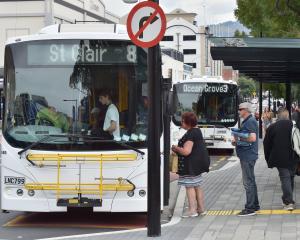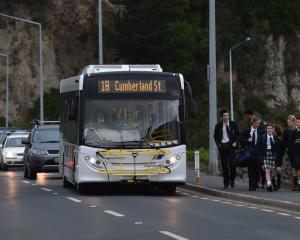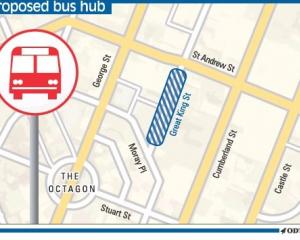Improvements to public transport in Otago will be considered in the development of a six-year regional public transport plan.
Preliminary stages were discussed at a recent meeting of the Otago Regional Transport Committee in Dunedin.
Jane Turnbull, Otago Regional Council (ORC) transport manager, told the committee there would be two stages of consultation before the draft plan was expected to be adopted at the end of the year for implementation in early 2013.
Dr Turnbull said the plan had to be completed before legislative change and a tender round coming up for more bus services.
The six-year plan could be reviewed at any time, she said.
Informal consultation, required by law, would involve stakeholders including local authorities and community groups. Registered public transport operators, Otago territorial authorities, the New Zealand Transport Agency, Ministry of Education, KiwiRail, tertiary sector groups and organisations representing disabled people would be consulted.
The ORC policy committee would then consider a statement of proposal for recommendation to the council in late July, after which the plan would be opened to public submissions.
It was expected submissions would close in late September and be heard in October, before the policy committee considered a final plan for adoption by the council in mid-December.
The plan built on Otago's regional land transport strategy, the regional council's draft land transport programme, and past submissions to local authorities about public transport.
Feedback from residents through previous consultation would be considered, and some of the recent submissions to the transport committee in respect of public transport had been included in the plan scope.
Ongoing feedback from bus users would also be studied.
The plan would address the regional council's involvement in procuring public transport services, registration, a total mobility scheme and an integrated public transport network policy for Dunedin and the Wakatipu basin.
It would aim to support economic development and alternative transport services, and offer choices to people considered most at need.










